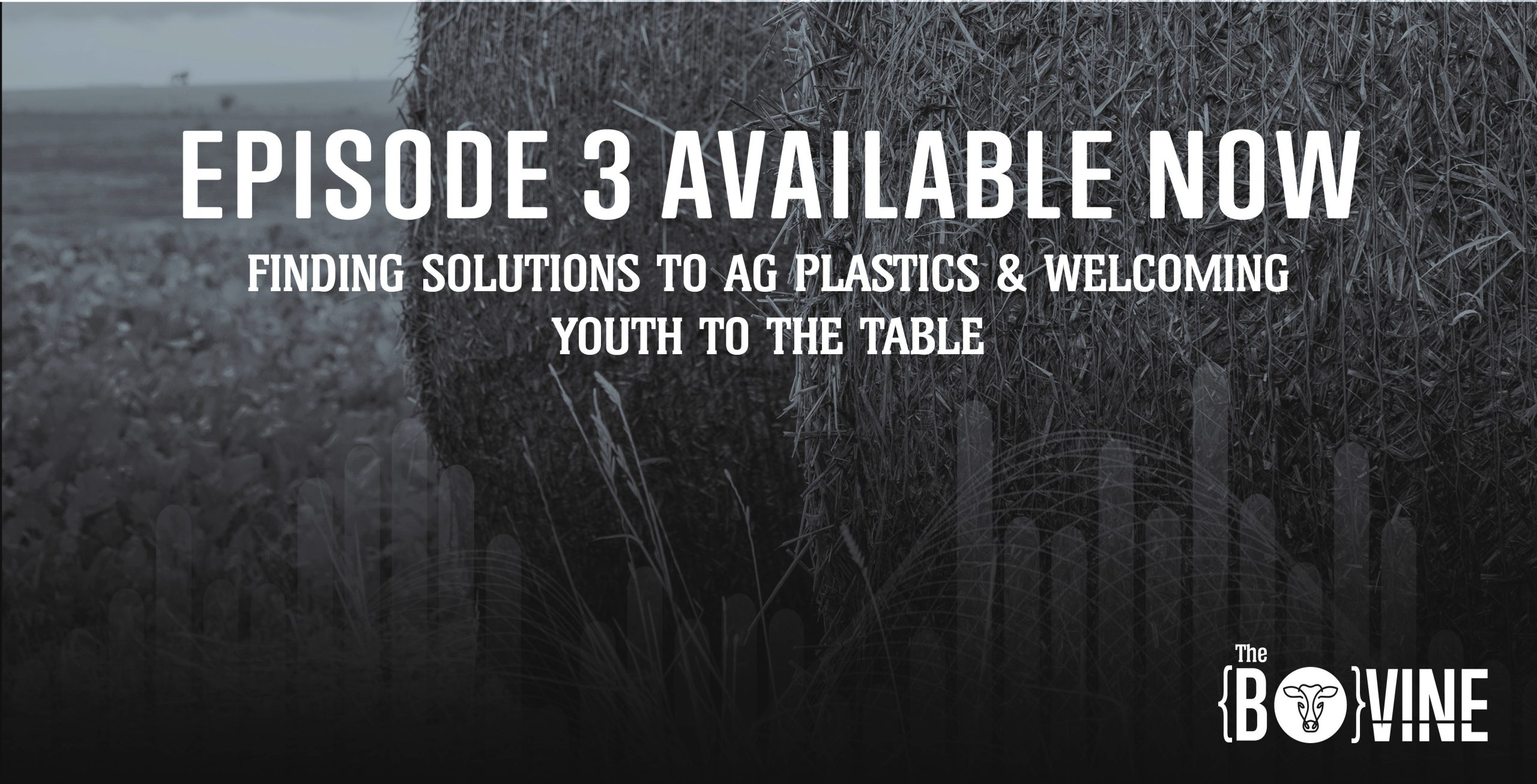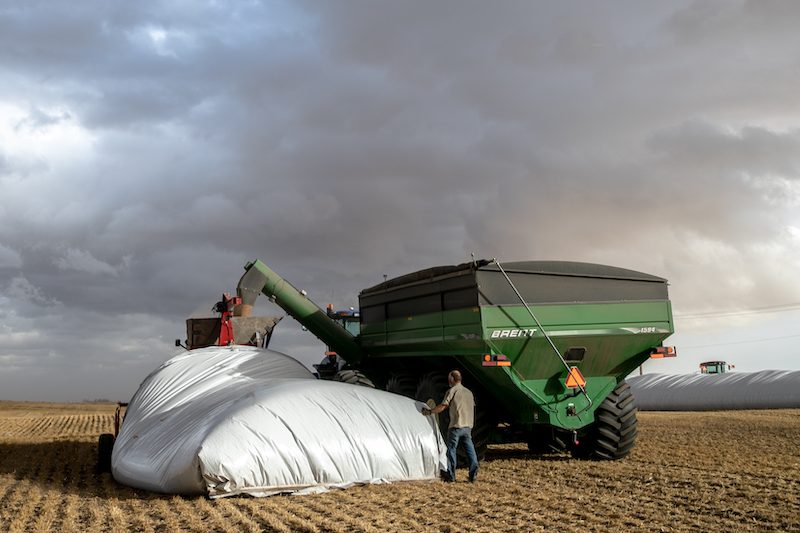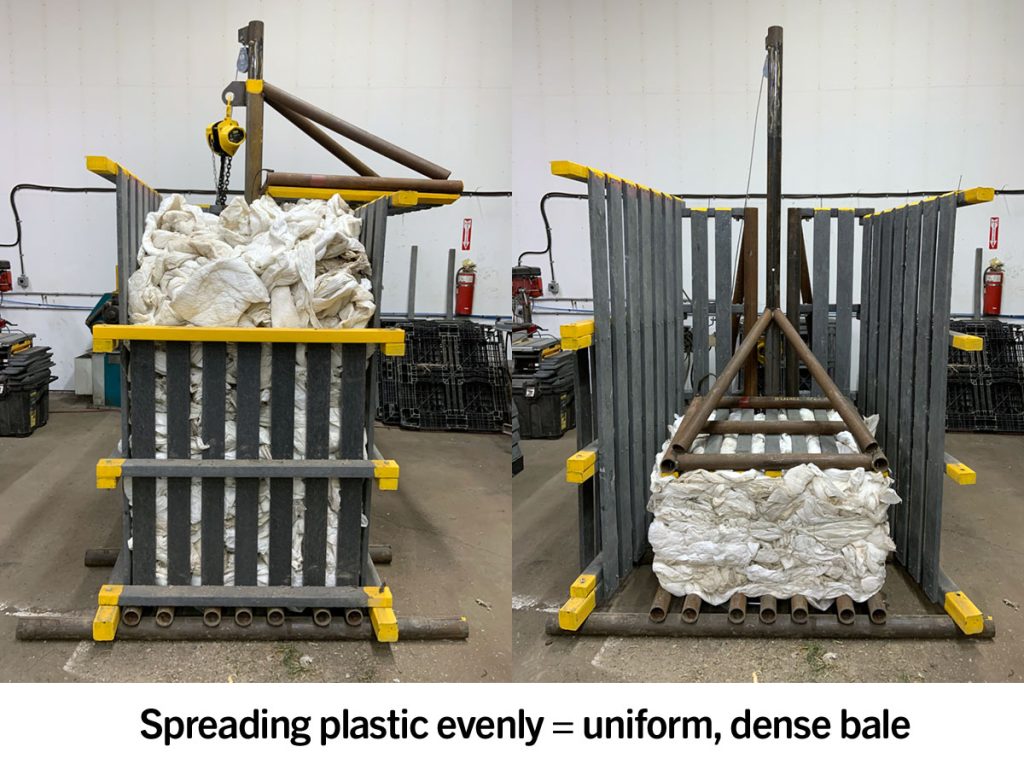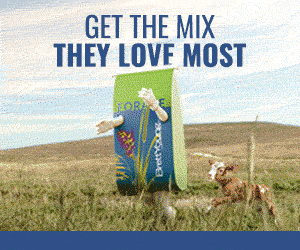AB Direct - Steers
Rail: 518.50-528.50 FOB feedlot (last week)
AB Direct - Heifers
Rail: 518.50-528.50 FOB feedlot (last week)
US Trade- Steers
Rail: 388.00 (NE, IA) last week
US Trade - Heifers
Rail: 388.00 (NE, IA) last week
Canadian Dollar
0.01

The Bovine: Finding solutions to ag plastics and welcoming youth to the table
This episode of The Bovine focuses on two topics relevant to the beef industry — youth involvement in the industry and managing agricultural plastics.
For the first segment, host Debra Murphy talks to returning Finance Chair, Brodie Haugan, about his experience as a young delegate.
Haugan then takes the host chair to introduce past delegate and current ABP representative with the Agricultural Plastics Recycling Group (APRG), Assar Grinde. The duo talk about the APRG’s work on Alberta Ag-Plastics: Recycle it!
And finally, in the last segment, Murphy speaks with Kasko Cattle Company’s Ryan Kasko, and Cleanfarms’ Davin Johnson on a silage pit plastic pilot project underway in Lethbridge County.
Continue below for some of the resources mentioned in the interviews.
Youth involvement in the beef industry
While some stumble into agriculture, others are born into it.
“It was never really a decision for me,” says Brodie Haugan, ABP Finance Chair and young cattle producer. “It was something I grew up with, I knew I was always going to be a part of it.”
Haugan started sitting at the ABP table as an even younger producer eight years ago.
“I’ve definitely felt welcomed. It definitely, in my opinion, changed the conversation a little bit — having a younger perspective around the table, and maybe shaking up the comfort zone of some of the conversations in the groups of people,” says Haugan.
“It’s been good. We’ve been seeing a lot of young people get involved, especially since the development of the Cattlemen’s Young Leaders Program.”
- Apply to the Cattlemen’s Young Leaders Mentorship Program today
- Cattlemen’s Young Leaders graduate spotlight
Haugan says that one of the biggest barriers to youth involvement is time commitment. But, he says, it is important to get off operation and get involved in industry. In addition to having a say in industry direction, Haugan says he has met a lot of people, and can bring back some lessons to his family’s operation.
“It’s just taking the time to get involved. You’ve just got to make it happen for yourself.”
Agricultural plastics in Alberta
Grain bags and twine
According to the Agricultural Plastics Recycling Group (APRG), from October 2019 through December 2021 approximately 1,700 tonnes of grain bags and 200 tonnes of baler twine were collected for recycling as part of an agricultural plastics recycling pilot in Alberta.
“The Alberta Government funded an ag plastics recycling pilot program for grain bags and twine,” explains Assar Grinde, who sits on the APRG Executive as ABP’s representative. “It was a three-year, $1M pilot program to look at studying the logistics and the cost, and some of the obstacles to recycling those two products.”
“In 2019 we did a waste characterization study, and it showed that of all the ag plastics that we use in the province, I think there’s 24 percent of it was silage plastic, 23 percent was twine, 22 percent was grain bags — so those were the big three,” says Grinde.
The fact that grain bags and twine are also easily recyclable and already have markets, made them the obvious first choice for the pilot.
The pilot started with 20 collection sites, and that’s now up to 90, with interested counties and waste commissions able to apply to Cleanfarms.
And while many producers are concerned with the costs of such a program, Grinde says there is a cost to every disposal method.
APRG Frequently Asked Questions
Grinde believes recycling could be part of the solution, along with plastic alternatives like biodegradable or palatable products.
Next steps
With the pilot in its final year, APRG is encouraging the transition to a permanent program.

”The one that we’re recommending to government and to commodity groups is something called Extended Producer Responsibility — you’ll hear it called EPR.”
Grinde says this puts the responsibility of proper disposal or recycling on the producers of the products.
“I think it’s the best way of doing it, because it kind of gives industry and private industry the ability to run and change the program however they see fit. It gives it a lot of flexibility.”
- Managing ag plastics long-term — can product suppliers play a bigger role?
- How ag plastics recycling works in Alberta – challenges and opportunities
- Can the ag sector achieve zero plastic waste on the farm?
APRG is also advocating for harmonization with the other prairie provinces, high levels of transparency and accountability in a permanent system, along with the ability to add more products over time.
The Alberta Ag-Plastics: Recycle it! pilot is funded by funding from the Government of Alberta, and is administered by ABP. Cleanfarms has been selected as the pilot program operator.
Silage pit plastic
A second and separate pilot looking at bale wrap and silage pit plastic is currently operating in Lethbridge County.
As part of the pilot, Cleanfarms is testing a manual compactor designed and manufactured by Full Circle Plastics of Nobleford, Alberta. Full Circle Plastics develops plastic lumber in the province, so it should come at no surprise how the compactors are developed.
“These [compactors] are made out of recycled plastics,” says Davin Johnson, Alberta Program Advisor with Cleanfarms. “It’s also made with recycled drill stem pipe from the province.”
Johnson says there are currently five operations with compactors in the County, and while all of them were maybe hesitant at the start, most now want a second compactor to allow them to do bale wrap in one and silage pit plastic in the other.
This pilot is funded in part by the Government of Canada. And while it is currently happening in Lethbridge County, the Dairy Farmers of Canada is supporting the expansion through the province by purchasing compactors for dairy farms in other areas. As well, he says many areas have them for public use already.
If you’re interested in recycling agricultural plastics, but aren’t sure if there’s a program in your region, Johnson suggests contacting your local agricultural fieldman, county/municipal district representative, or waste commission to see if they accept these materials for recycling.
“The ultimate goal is that at some point in the future…we’re able to provide a province-wide, permanent program for these plastics,” says Johnson.
The Bovine is Alberta Beef Producers’ podcast, and is published monthly, with bonus episodes to coincide with timely content (or content we simply can’t fit in our regular show). Find it by hitting the “podcast” button at the top of ABP Daily, or by searching ‘The Bovine’ in your favourite podcast app.


